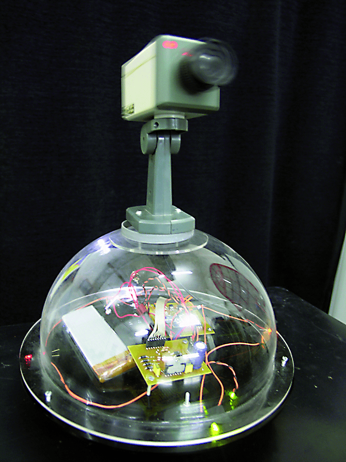
SafeARTECH: Safeguarding digital, experimental and technological art of the last decades in Spain: Perspectives, challenges and opportunities (PID2024-155970NA-I00), is an innovative project that examines artistic practices mediated by emerging technologies in Spain over the past four decades, focusing on their safeguarding through a comprehensive study of their acquisition, cataloguing, documentation, archiving, preservation, promotion, and dissemination. These practices represent a critical space at the intersection of Art, Science, Technology, and Society (ASTS), serving as fundamental pillars for cultural projects both nationally and across Europe.
Despite their significance, the conservation of digital, electronic, and technology-mediated art faces major challenges in Spain. Key issues include the lack of trained specialists and professionals, insufficient research initiatives, the absence of a legal framework adapted to the specificities of these works, and inadequate infrastructure to manage their interdisciplinary, ephemeral, and technology-dependent nature. This situation not only jeopardises the heritage held by institutions but also restricts societal access to a key body of work necessary for understanding the contemporary era and for fostering critical reflection on the cultural and social impacts of technological advances.
Building on international contributions, the project is founded on the hypothesis that it is urgent to promote collaborative research to overcome the stagnation in policies regarding the protection, appreciation, and study of these artistic practices in Spain. SafeARTECH aims to bring together previously isolated efforts among public and private stakeholders, creating a platform for knowledge exchange between researchers, professionals, and citizens, while fostering a geographically diverse and inclusive collaborative network. Additionally, the project seeks to address the lack of access to archives and databases dedicated to the conservation of new media, and to advance policy recommendations for administrative and institutional frameworks.
These efforts aim to lay the foundation for sustainable and inclusive conservation practices while raising awareness about the value of this cultural and artistic legacy.
The project employs a diverse range of methodologies, including documentary research, theoretical and critical analysis of scholarly literature, direct observation, interviews, case studies, statistical analysis of surveys and databases, and artistic practice. Its activities will unfold over three phases across three years: contextualisation and methodological design, empirical work, and the transfer and dissemination of results.
SafeARTECH brings together an interdisciplinary team of researchers specialised in various fields, supported by a broader team of highly regarded professionals. Seven Spanish universities (UCM, UPV, UCLM, UL, URV, UMH, USAL) and six prominent cultural institutions (MNCARS, MACBA, CA2M, Medialab Matadero, HAMACA, and SOLO Contemporary) collaborate in this initiative. This ecosystem ensures the achievement of the project’s objectives and the delivery of impactful results, positioning research in the conservation of new media in Spain at a competitive international level.
Keywords: Electronic and digital art, Experimental art, New media art, ASTS, Conservation, Preservation, Safeguarding, Contemporary Art Heritage, Digital heritage
Project Title: SafeARTECH: Salvaguardia del arte digital, experimental y tecnológico de las últimas décadas en España: perspectivas, retos y oportunidades
Duration: 2025-2028
Official code: PID2024-155970NA-I00
Funding: MICIU /AEI/FEDER UE (93,750,00 €)
Lead Institution: Universidad Complutense de Madrid
Principal Investigator: Dr. Esther Moñivas Mayor [esther.monivas@ucm.es]
Foto: Ricardo Iglesias, prototipo robot de la instalación Surveillance Cameras: they are alive!!, 2009.